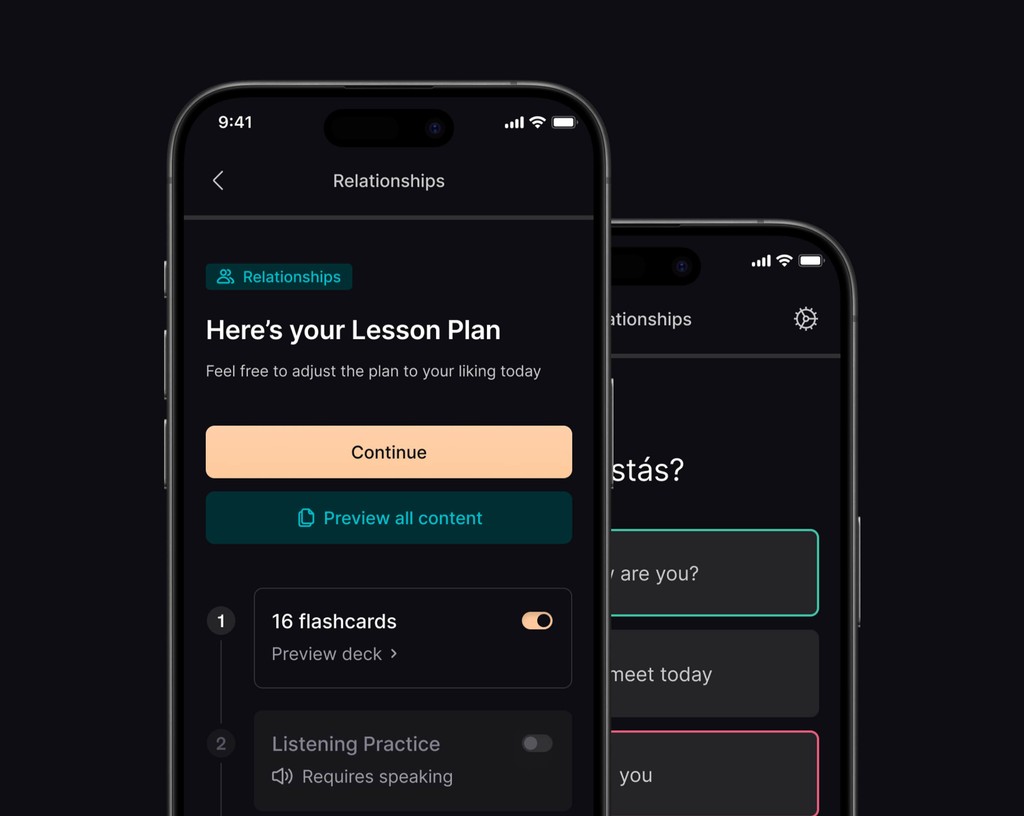Culturally Responsive Language Teaching with AI
Apr 29, 2025
Culture Shock
Language transcends vocabulary and grammar—it's a reflection of culture, values, and lived experiences. Today's educators increasingly recognize culturally responsive teaching, which adapts content to cultural contexts, as crucial to improving student engagement and academic outcomes.
In language education, this approach means utilizing culturally authentic and contextually relevant content. Languages are gateways to other cultures, allowing learners to build intercultural competence alongside linguistic proficiency. For instance, Spanish lessons become significantly more engaging when students encounter genuine cultural elements like regional festivals, current news, or idiomatic expressions, rather than generic, disconnected dialogues. Such cultural depth transforms language learning into meaningful exploration, helping learners interact naturally with native speakers by understanding their values, perspectives, and humor.
For administrators and educators, culturally authentic content isn't merely supplementary—it’s essential. When students see their cultures reflected or engage deeply with the target culture, motivation and inclusivity soar. Language lessons become pathways to global empathy and curiosity, laying a solid foundation for genuine communicative competence.
AI as a Powerful Tool for Cultural Authenticity
Artificial Intelligence (AI) presents groundbreaking opportunities to infuse language learning with authentic cultural content. When leveraged thoughtfully, AI seamlessly bridges classroom education with real-world contexts, making learning dynamic and genuinely relevant.
Here’s how AI-powered platforms enhance cultural authenticity:
Real-Time, Globally Relevant Content
AI platforms can instantly access and curate current, authentic content from around the globe—news articles, podcasts, and social media from target-language countries. Imagine learners reading today's headlines from Tokyo or listening to popular podcasts from Mexico City, bringing real-world context directly into lessons. This approach keeps language instruction timely, culturally relevant, and engaging.
Level-Appropriate Adaptation
Authentic material often challenges learners due to complexity. Advanced AI solves this by adapting real content to match learners’ proficiency levels. Complex news articles can be automatically simplified, annotated, or summarized for different skill levels, ensuring learners engage deeply without feeling overwhelmed. This tailored learning experience allows even beginners to confidently access culturally authentic materials.
Personalized Learning Through Diverse Perspectives
AI excels at personalization, recommending culturally rich content tailored to individual students' interests and backgrounds. A sports enthusiast might receive current sports news from Brazil, while a music lover gets updates on popular bands from Korea. Such personalized content fosters deeper engagement and exposes students to diverse perspectives within the target culture, enhancing their appreciation of cultural diversity.
Interactive Cultural Context
AI-driven interactive tools, such as chatbots and virtual assistants, provide immediate context for cultural references. When learners encounter unfamiliar cultural concepts or historical references, AI delivers instant explanations, definitions, or even short multimedia clips. This interactive feature helps students grasp cultural nuances organically, developing their ability to independently inquire and learn about new cultures.
Ensuring Authenticity and Respect with AI
While AI offers remarkable advantages, careful implementation is essential to avoid cultural insensitivity or inaccuracies:
Avoiding Cultural Bias: AI systems trained on biased datasets risk reinforcing stereotypes. Educators must carefully curate and review content, ensuring diverse and balanced representation of cultures.
Rejecting Generic Content: Prioritize AI platforms that deliver real human-generated content—actual news, authentic stories, and genuine media. Auto-generated content often lacks real-world nuance and depth, limiting students' preparedness for authentic interactions.
Providing Context and Explanations: Merely presenting authentic material without context can confuse students. Effective AI tools integrate pedagogical support, like translations, explanatory notes, and interactive discussions, ensuring clarity and effective learning.
Ensuring Digital Equity: All students must have equitable access to AI technology. Administrators should verify that necessary devices, connectivity, and training are available to ensure that technology enhances education inclusively.
Teachers remain central to guiding the effective use of AI, providing human oversight, ensuring cultural accuracy, and modeling respectful cultural curiosity.
Culture Shock: A Model of Authentic Language Learning
Culture Shock, an innovative AI-driven platform, exemplifies culturally responsive language education by delivering daily, real-world language practice through local news stories. By curating popular local articles and adjusting content according to each learner's proficiency, Culture Shock ensures students engage with genuine, culturally-rich materials daily.
For instance, a learner studying French might read simplified, real-time reports from Paris or Dakar, keeping their learning experience authentic and engaging. This culturally immersive approach contrasts starkly with traditional apps that rely on scripted dialogues or generic scenarios.
Because Culture Shock content derives directly from authentic local media, it conveys genuine voices, humor, perspectives, and cultural nuances. Students begin recognizing influential cultural figures, historical events, and contemporary debates naturally, bridging language proficiency with cultural literacy. Educators benefit too, as they can effortlessly incorporate Culture Shock’s real-world content into class discussions, connecting language learning to social studies, current events, and global citizenship.
Conclusion
Integrating AI in culturally responsive language teaching means combining technology’s powerful capabilities with rich cultural authenticity. Done thoughtfully, AI becomes a transformative force in education, preparing students not merely to speak a language, but to become informed, culturally competent global citizens.
Discover how Culture Shock can elevate your language curriculum—bringing genuine cultural authenticity to every lesson.
Ready to learn?
Get immersed
in any language
Join CultureShock today and learn to converse with confidence, anywhere in the world.




